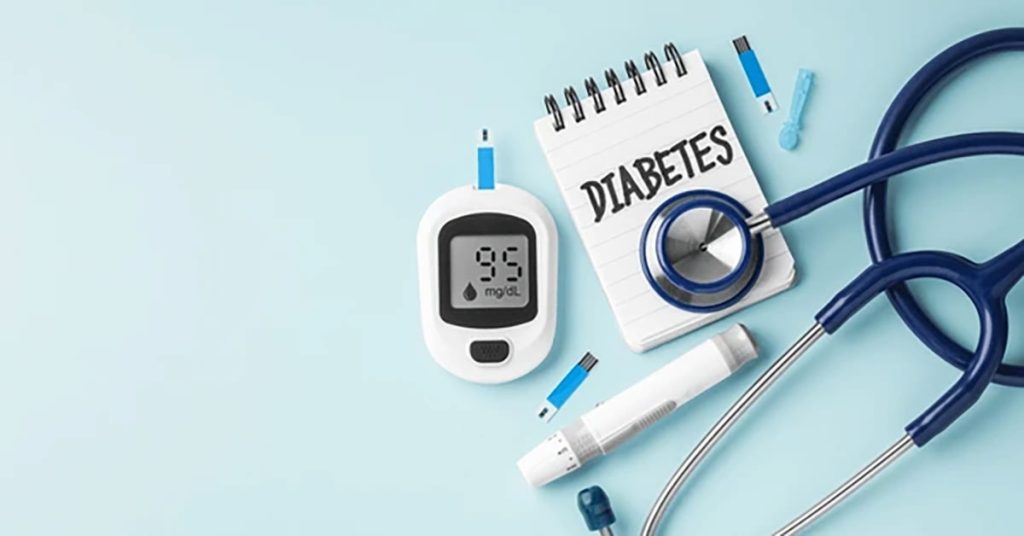Diabetes is a growing concern in the Bahamas, where lifestyle and diet can play a significant role in blood sugar management. Learn how to manage blood sugar levels, make better food choices, and stay active.
With warm weather, rich cuisine, and a relaxed island lifestyle, staying on top of diabetes can be challenging—but with the right approach, it’s entirely possible to live a healthy, active life.
Whether you’ve been recently diagnosed or have been managing diabetes for years, these lifestyle tips can help you control your blood sugar levels while still enjoying all that the Bahamas has to offer.
Understanding Diabetes: A Quick Overview
Diabetes occurs when the body cannot properly regulate blood sugar levels due to insulin resistance (Type 2 diabetes) or a lack of insulin production (Type 1 diabetes). Uncontrolled diabetes can lead to serious complications, including heart disease, kidney damage, vision loss, and nerve problems.
In the Bahamas, Type 2 diabetes is the most common form, and it is often linked to diet, lifestyle, and genetics. Fortunately, healthy choices and proper management can help prevent complications and improve overall well-being.
Eat a Caribbean-Friendly, Diabetes-Friendly Diet
The Bahamas is known for its delicious foods, but traditional dishes can be high in sugar, unhealthy fats, and refined carbohydrates, which can spike blood sugar levels. The key is to modify your diet while still enjoying local flavors.
What to Eat More Of:
🥗 Fresh Vegetables & Leafy Greens – Callaloo, okra, cabbage, and spinach are nutrient-dense and low in carbs.
🐟 Lean Proteins – Fresh fish (snapper, grouper, salmon), chicken, eggs, and legumes provide essential nutrients.
🍠 High-Fiber, Low-Glycemic Carbs – Swap white rice for brown rice, quinoa, or ground provisions like sweet potatoes and yams.
🥭 Low-Sugar Fruits – Enjoy guava, tamarind, papaya, and passion fruit in moderation instead of sugary tropical fruits like overripe bananas.
🥜 Healthy Fats – Avocados, coconut oil, and nuts help balance blood sugar and keep you full longer.
What to Eat Less Of:
❌ Processed & Sugary Foods – Reduce sweet drinks, cakes, pastries, and white bread.
❌ Heavy Starches – Limit white rice, white flour, fried plantains, and cassava.
❌ Alcohol & Sweetened Beverages – Cut down on rum, sugary cocktails, sodas, and boxed fruit juices.
💡 Tip: Instead of frying food, try grilling, baking, steaming, or boiling to make meals healthier.
Stay Hydrated & Avoid Sugary Drinks
Bahamian heat can make you sweat more, increasing the risk of dehydration, which can lead to higher blood sugar levels.
💧 Drink plenty of water throughout the day.
🥥 Opt for fresh coconut water in moderation (without added sugar).
🍵 Try herbal teas like moringa, ginger, and cerasee, which may support blood sugar control.
🚫 Avoid sweetened drinks like soft drinks, boxed juices, and sugary coffee drinks.
Get Active with Bahamian-Friendly Exercise
Regular physical activity helps lower blood sugar levels and improves insulin sensitivity. In the Bahamas, there are many ways to stay active without needing a gym:
🏊♂️ Swimming & Water Aerobics – A low-impact workout that’s easy on the joints.
🏝️ Beach Walks & Jogging – Walking on sand strengthens muscles and burns more calories.
🕺 Dancing & Soca Workouts – Fun ways to keep your heart healthy.
🚴 Cycling & Outdoor Activities – Explore local trails or ride a bike to work.
🏋️ Strength Training – Using resistance bands or bodyweight exercises helps regulate blood sugar.
💡 Tip: Aim for at least 30 minutes of exercise, five days a week to help keep blood sugar levels stable.
Monitor Your Blood Sugar Regularly
Keeping track of your blood sugar levels helps prevent complications and allows you to make better choices based on how your body responds to food and activity.
✔️ Test blood sugar levels regularly, especially before and after meals.
✔️ Keep a journal to track patterns and adjust your diet or exercise routine accordingly.
✔️ Recognize warning signs of low (hypoglycemia) or high (hyperglycemia) blood sugar.
🚨 Warning Signs to Watch For:
📈 High Blood Sugar: Frequent urination, excessive thirst, fatigue, blurry vision.
📉 Low Blood Sugar: Dizziness, sweating, shakiness, irritability.
💡 Tip: Always carry a small healthy snack, like nuts or a protein bar, in case your blood sugar drops unexpectedly.
Manage Stress & Get Enough Sleep
Stress and lack of sleep can cause blood sugar spikes. The Bahamian lifestyle encourages relaxation, but stress from work, finances, or personal challenges can still take a toll.
🧘♂️ Practice Stress Reduction – Try deep breathing, meditation, or spending time in nature.
💤 Prioritize Sleep – Aim for 7-9 hours of sleep per night to regulate hormones that affect blood sugar.
🎶 Enjoy Relaxation Activities – Listen to music, take a boat ride, or spend time with loved ones to unwind.
💡 Tip: Limit caffeine and screen time before bed to improve sleep quality.
Get Regular Checkups & Work with a Doctor
Managing diabetes is a lifelong commitment, and regular medical checkups can help prevent complications like kidney disease, nerve damage, and heart disease.
At Family Medicine Center, we provide:
🩺 Routine blood sugar and A1C testing to monitor long-term control.
💊 Medication management if needed, including insulin therapy.
👀 Eye exams, foot checks, and heart health screenings to detect early signs of complications.
🍽️ Personalized nutrition and lifestyle counseling to create a sustainable, Bahamian-friendly meal plan.
Take Control of Your Health Today!
Diabetes doesn’t have to control your life—you can take charge with the right nutrition, exercise, and medical support. By making small, sustainable changes, you can enjoy a healthier, more active lifestyle in the Bahamas.
📅 Schedule an appointment with our clinic today to get a personalized diabetes management plan that works for you!

